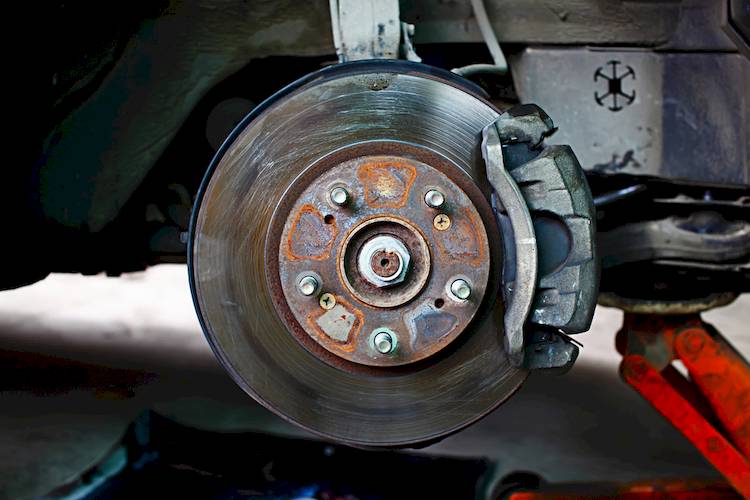

Disc brake rotors are metal discs that work together with the brake pads and calipers to slow the vehicle. Brake rotors are bolted directly to the wheel hub, so they spin in direct relation to wheel speed. When the brake pedal is depressed, the calipers squeeze the brake pads against the spinning rotors to slow and stop the wheels and the vehicle. Since rotors work to slow the vehicle by using friction from direct contact with the brake pads, they do wear out over time and will eventually need to be replaced. When rotors have a problem, they usually produce any of the following 4 symptoms that alert the driver they require attention.
1. Noisy Brakes
One of the first symptoms commonly associated with bad brake rotors is noise. If the rotors are warped (meaning not perfectly flat) or severely worn, they may produce squealing or squeaking sounds. Usually, warped rotors will produce a squeak, while severely worn rotors will produce a scraping sound. However, the squealing noise could originate from worn brake pads as well.
2. Vibrations from the Brakes
Another symptom of bad brake rotors is excessive vibration or pulsation coming from the brakes. Warped or excessively worn rotors may vibrate irregularly and cause vibrations that can be felt in the pedal, and sometimes through the vehicle’s steering wheel or chassis. Additionally, the brake pedal may feel like it’s pulsating when pressed due to warped brake rotors. This occurs because the pedal is no longer making contact with the surface of the rotor.
3. Grooves or Score Marks on the Rotor
Another symptom of bad or failing rotors is visual scoring or grooves on the face of the rotor. Repeated contact with the brake pads can develop these marks over time. Rotors are designed to have a thickness that wears down over time. However, should it degrade to a certain point, it lowers the overall safety of the vehicle.
4. Increased Stopping Distances
Scoring and grooves in a rotor can impede its capacity to slow the vehicle, as well as cause vibration and pulsation that can be felt in the pedal. Plus, when the pedal no longer interacts with the brake rotor, the ensuing vibration may make it feel like the car will not stop at all. Inability to stop or even extended stopping distances can be highly dangerous, especially if the driver is forced to make an emergency stop.
The disc brake rotors are a very important part of the braking system, and as a result are critical to the overall safety and handling characteristics of the vehicle. If you suspect your rotors may be worn or damaged, have the vehicle inspected by a professional technician to determine if your car needs a brake rotor/disc replacement.



